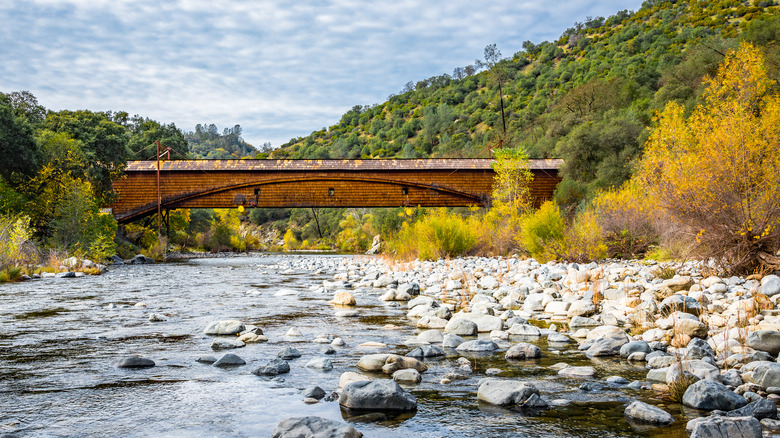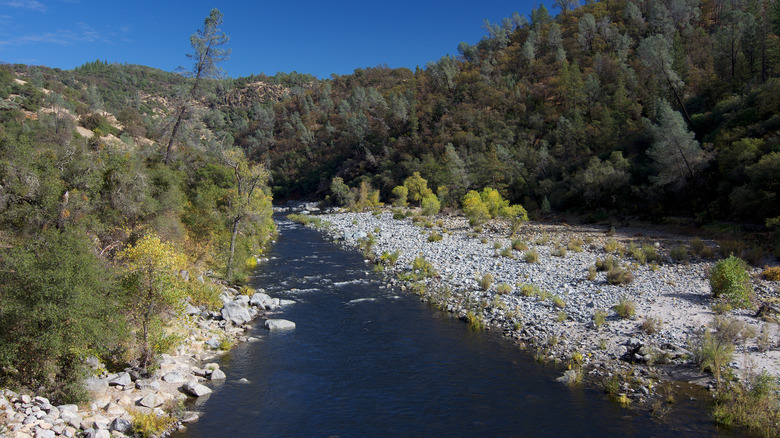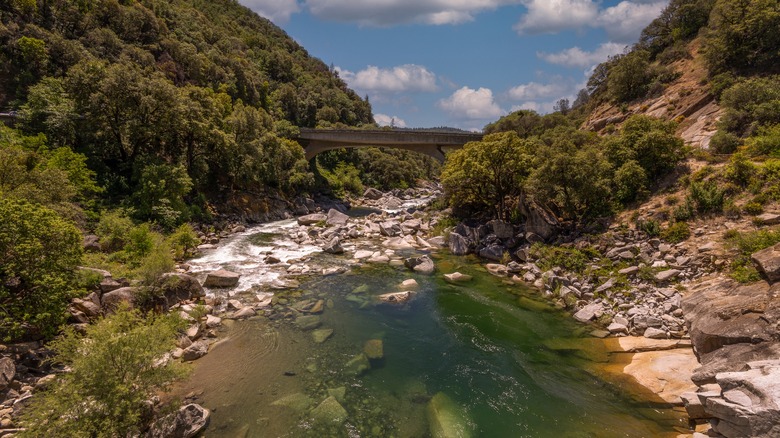An oasis that’s perfect for outdoor enthusiasts and nature lovers, South Yuba River State Park combines all the goodness of heading outside and reconnecting with the land. With plenty of swimming spots to cool down, hiking trails to explore, and other activities to enjoy, this hidden gem in northern California is the perfect getaway for some much-needed time under the sun.
Located roughly 68 miles north from the city of Sacramento, South Yuba River originally made a name for itself in the 1840s during the California Gold Rush. Today, however, visitors are bound to find a different type of gold that’s become hard to come by: untouched natural beauty. Covering a whopping 11,000 acres — 2,000 of which are cared for by the California Department of Parks and Recreation, and the other 9,000 by the Tahoe National Forest — the State Park is formally recognized as a destination of “Outstanding Remarkable Value” by local legislation.
So whether you’re looking for history, breathtaking scenery, or simply an opportunity to kick back and relax away from the noise, South Yuba River State Park has you covered.
A natural haven to explore

With a 20-mile stretch of river running along the canyon that visitors can navigate, South Yuba River State Park is great in terms of tucked away swimming holes for you to enjoy. Perfect for the whole family, the emerald green river has both shallow waters and gentle rapids that different levels of swimmers can take advantage of — just make sure you exercise basic caution, never swim beyond your level, and keep your eyes on your children at all times. The best time for swimming in the South Yuba River is between March and October, when the water is warm, the snow has melted, and the wildflowers are blooming. If you’d rather stay on land and near the shore instead, gold panning is allowed using the “hands and pans” method.
Away from the water, South Yuba River State Park also has plenty to offer. From birdwatching to hiking, the park’s trails are split into three main sections: the Bridgeport Trails, including the Buttermilk Bend Trail (1.2 miles one way), Point Defiance Loop (2.8 miles), and Cemetery Loop (less than a mile); Highway 49 Crossing Trails, such as the Independence Trail (which is partially closed at the time of writing) and Hoyt’s Trail (1.2 miles); and Purdon Crossing to Edward’s Crossing, encompassing the mountain bike-friendly South Yuba Trail (5 miles) and the Spring Creek Trail (1 mile). For more information on the park’s history, activities, and trails, there’s a handy downloadable brochure that’ll cover all of the bases.
Other details to keep in mind

South Yuba River State Park is currently open seven days a week from sunrise to sunset. Although entrance is technically free of charge, there is a fee to use the north and south side parking lots from Thursday to Sunday: $5 per vehicle during the off season, and $10 per vehicle from Memorial Day to Labor Day.
It’s also important to note that camping is strictly prohibited within park limits. However, for travelers who want to spend the night under the stars, there are nearby camping sites available in Malakoff Diggins State Historic Park, near Edwards Crossing, and at the South Yuba Tahoe National Forest. If you do camp out, remember to always follow “Leave No Trace” principles and to clean up before leaving your campsite.
Lastly, dog owners will be happy to know that their four-legged friends are welcome inside the park, on the trails, and along most of the shoreline. However, pets must stay away from Family Beach and up to 200 feet downstream.

